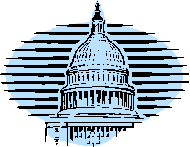LOS ANGELES--(BUSINESS WIRE)--Oct 29, 2015--Drug pricing
advocates affiliated with AIDS Healthcare Foundation (AHF) announce they will
file close to 550,000 signatures of registered California voters with state
election officials by Monday, November 2 nd in order to qualify The California
Drug Price Relief Act, a statewide ballot initiative that will revise California
law to require state programs to pay no more for prescription medications than
the prices negotiated by the U.S. Department of Veterans Affairs.
The V.A.
generally pays 20% to 24% less than any government program. The advocates
intend to qualify the measure for the November 2016 presidential election
ballot in California.
Separately, advocates from AHF and ‘Ohioans for Fair Drug
Prices’ have been collecting voter signatures in Ohio for a similar drug
pricing ballot measure since mid-August.
State officials approved petition
language in early August. Both the California and Ohio measures are expected to
qualify for, and appear on the November 2016 presidential election ballots in
their respective states.
The California Drug Price Relief Act
To qualify the California measure, 365,880 valid signatures of
registered voters are needed (5% of all votes cast for governor in the most
recent statewide election, which was held in November 2014).
However, as a
cushion, advocates, who began collecting signatures in early April, will
continue to collect signatures up until the October filing deadlines.
Signatures are to be submitted to the respective counties statewide, and after
signature certification, the ballot measure is expected to be placed on the
November 2016 California ballot.
“As of August 16 th, we had already collected enough
signatures to qualify our California ballot measure, which, when passed by
voters in November 2016, will compel state officials to obtain V.A. pricing—by
far, the lowest pricing available to any government agency—for the purchase of
prescription drugs for use in state programs,” said Michael Weinstein,
president of AIDS Healthcare Foundation and one of the citizen proponents of
the California measure.
“If California—and Ohio—are able to pay the same prices
for prescription drugs as the amounts paid by the United States Department of
Veterans Affairs, it would result in significant savings to taxpayers. These
ballot initiatives are necessary and appropriate to address public concern
about runaway drug pricing.”
“Nationally, prescription drug spending increased more than
800 percent between 1990 and 2013, making this one of the fastest-growing
segments of health care,” said Tracy Jones, Executive Director of the AIDS
Taskforce of Greater Cleveland and one of the citizen proponents of the Ohio
measure.
“Spending on specialty medications, in particular, such as those used
to treat HIV/AIDS, Hepatitis C, and cancers, are rising faster than other types
of medications. In 2014 alone, total spending on specialty medications
increased by more than 23 percent.
"And although Ohio has engaged in efforts to
reduce prescription drug costs through rebates, drug manufacturers are still
able to charge the state more than other government payers for the same medications,
resulting in a dramatic imbalance that must be rectified.
"That is why we are
mounting this initiative, bringing the critical issue to legislators and, if
necessary, directly to Ohio voters if the legislature fails to act.”
The Ohio Drug Price Relief Act
On August 3 rd, Ohio Attorney General Mike DeWine approved
petition language for a similar drug pricing ballot initiative in Ohio
seeking Department of Veterans Affairs pricing for state programs. On
August 13th, the Ohio Ballot Board approved the proposed statute as a single
issue. As a result, that measure, backed by AHF and Ohioans for Fair Drug
Prices, was cleared for signature gathering—an effort that will begin in
earnest today in Ohio.
According to the Cleveland.com website
(the Northeast Ohio Media Group), “ Supporters can now begin collecting the
91,677 signatures of registered Ohio voters required to put the issue before
the Ohio General Assembly.
State lawmakers would then have four months to act
on the legislation. If they reject or change the proposed law, supporters then
have the chance to collect another 91,677 signatures to put the issue before
voters.”
According to the Ohio petition language, “The Ohio Drug Price
Relief Act would enact Section 194.01 of the Ohio Revised Code to require that
notwithstanding any other provision of law and in so far as permissible under
federal law, the State of Ohio shall not enter into any agreement for the
purchase of prescription drugs or agree to pay, directly or indirectly, for
prescription drugs, including where the state is the ultimate payer, unless the
net cost is the same or less than the lowest price paid for the same drug by
the U. S. Department of Veterans Affairs.”
AIDS Healthcare Foundation (AHF), the largest global AIDS
organization, currently provides medical care and/or services to over 492,000
individuals in 36 countries worldwide in the US, Africa, Latin
America/Caribbean, the Asia/Pacific Region and Eastern Europe.
To learn more
about AHF, please visit our website: www.aidshealth.org,
find us on Facebook: www.facebook.com/aidshealth and
follow us on Twitter: @aidshealthcare and Instagram: @aidshealthcare






